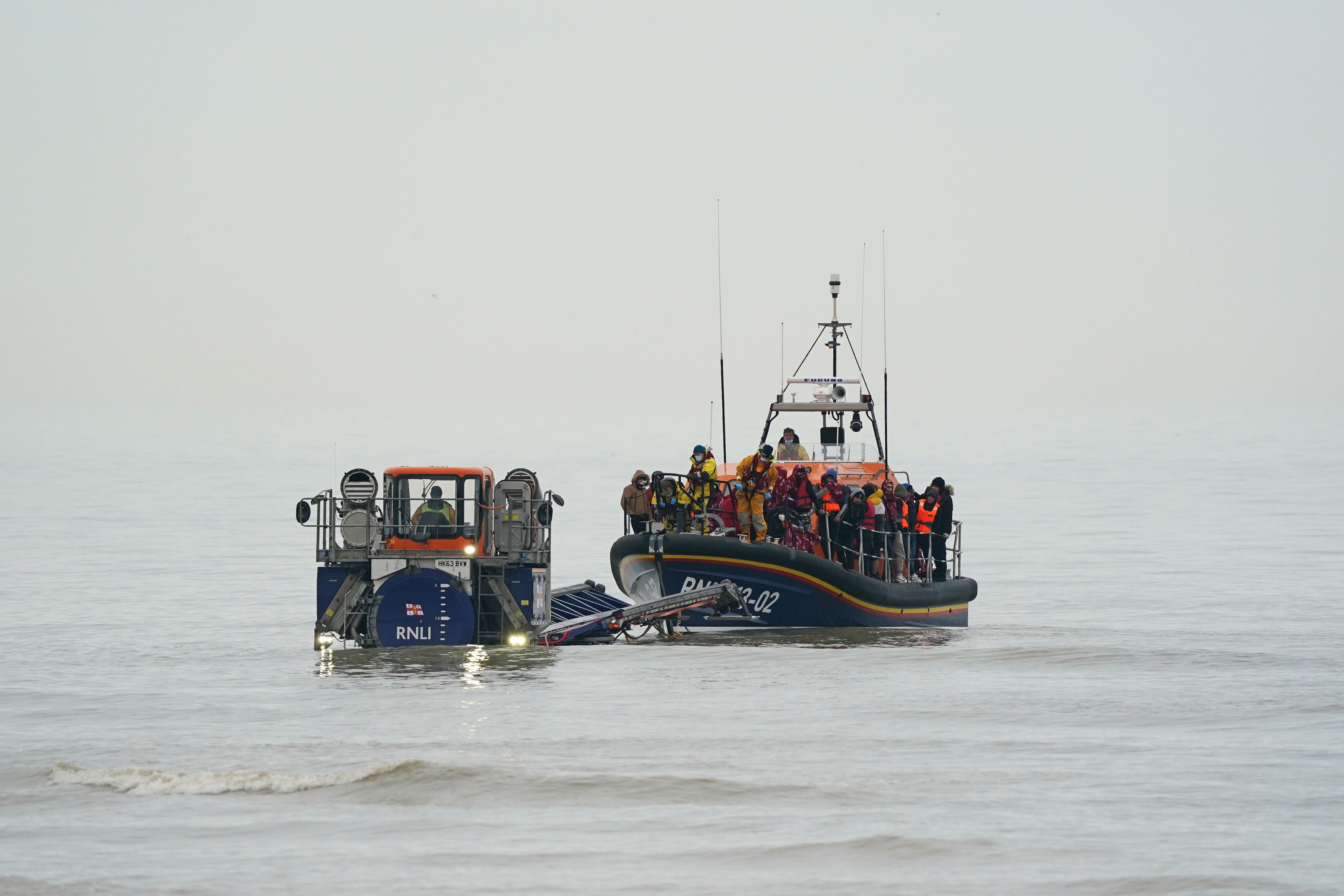The Home Office narrative over Channel boat crossings should concern us all
Harsh rhetoric has become the norm – but there is a distinct lack of evidence to back it up, says May Bulman


Twice now, the UK home secretary has told MPs and Lords in no certain terms that the majority of people crossing the Channel are not claiming asylum or fleeing persecution.
The first time, Patel told the Lords Home Affairs and Justice Committee in October that 70 per cent of individuals on small boats were single men who are effectively economic migrants – “not genuine asylum seekers”.
Then again, last week, she told MPs on the Home Affairs Select Committee “the majority of them are people that are not claiming asylum or fleeing persecution”.
The minister uses these claims to justify her controversial borders bill, which she hopes will enable the government to criminalise those making the crossing and, where possible, deport them back to the EU countries they travelled through (though the bilateral deals that must be struck to enable this to happen are yet to be reached).
Yet Patel has failed to provide evidence to back up her assertions – and they contradict the Home Office’s own statistics. Data and notes published by the department in November state that “almost all” people who arrive on small boats claim asylum. Two thirds of all applications were granted on the first decision, while half of appeals were successful.
Now her junior colleague, immigration minister Tom Pursglove, has tried to provide his explanation on the Home Office’s assessment of the situation – but has arguably only complicated it further.
In a letter to the Home Affairs Select Committee last month, published this week, he admits that “many of the individuals arriving in the UK in small boats are from high (asylum) grant-rate nationalities” – but goes on to claim that these people are nonetheless not in need of protection.
Pursglove says people’s reasons for crossing the Channel are “not solely motivated by a need to seek protection” given they have travelled through Europe. This contradicts the United Nations High Commissioner for Refugees’s assertion that it is not a requirement under the Refugee Convention or any other international law to seek protection in the first safe country.
He goes on to claim that asylum grant rates are “dependent on various factors” and gives a paragraph-long list including the “objective country situation at the date of decision”, the “type and range of supporting evidence submitted”, the claimant’s “personal characteristics”… the list goes on. None of it amounts to any evidence that most Channel migrants are not genuine asylum seekers.
Concern is mounting that the Home Office is feeding a narrative that migrants crossing the Channel are not in need of protection and deserve no sympathy. Patel and her colleagues can continue to push this rhetoric – but until and unless they provide evidence to back it up, the criminalising policies they are proposing will face intense opposition.



Join our commenting forum
Join thought-provoking conversations, follow other Independent readers and see their replies
Comments